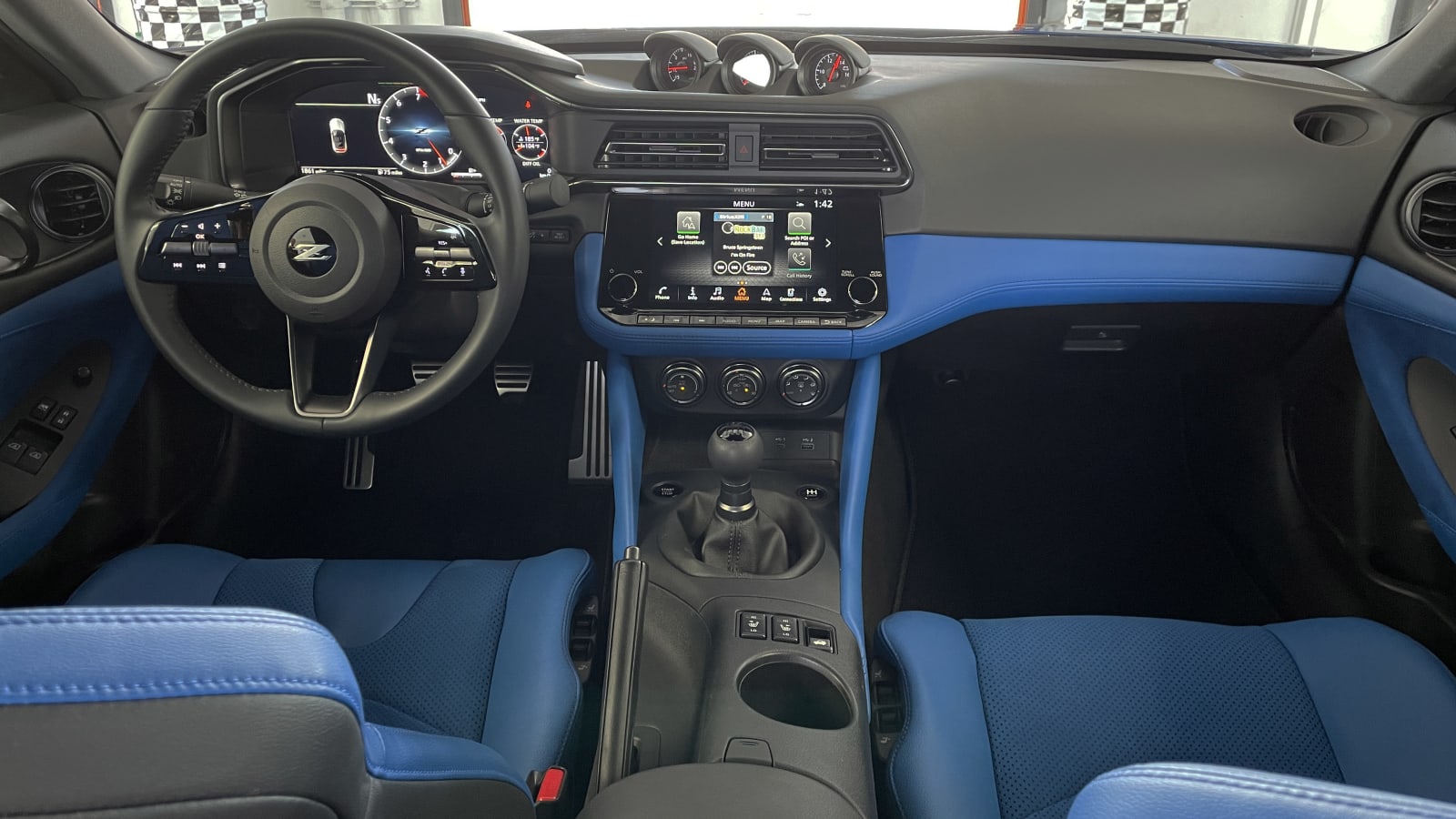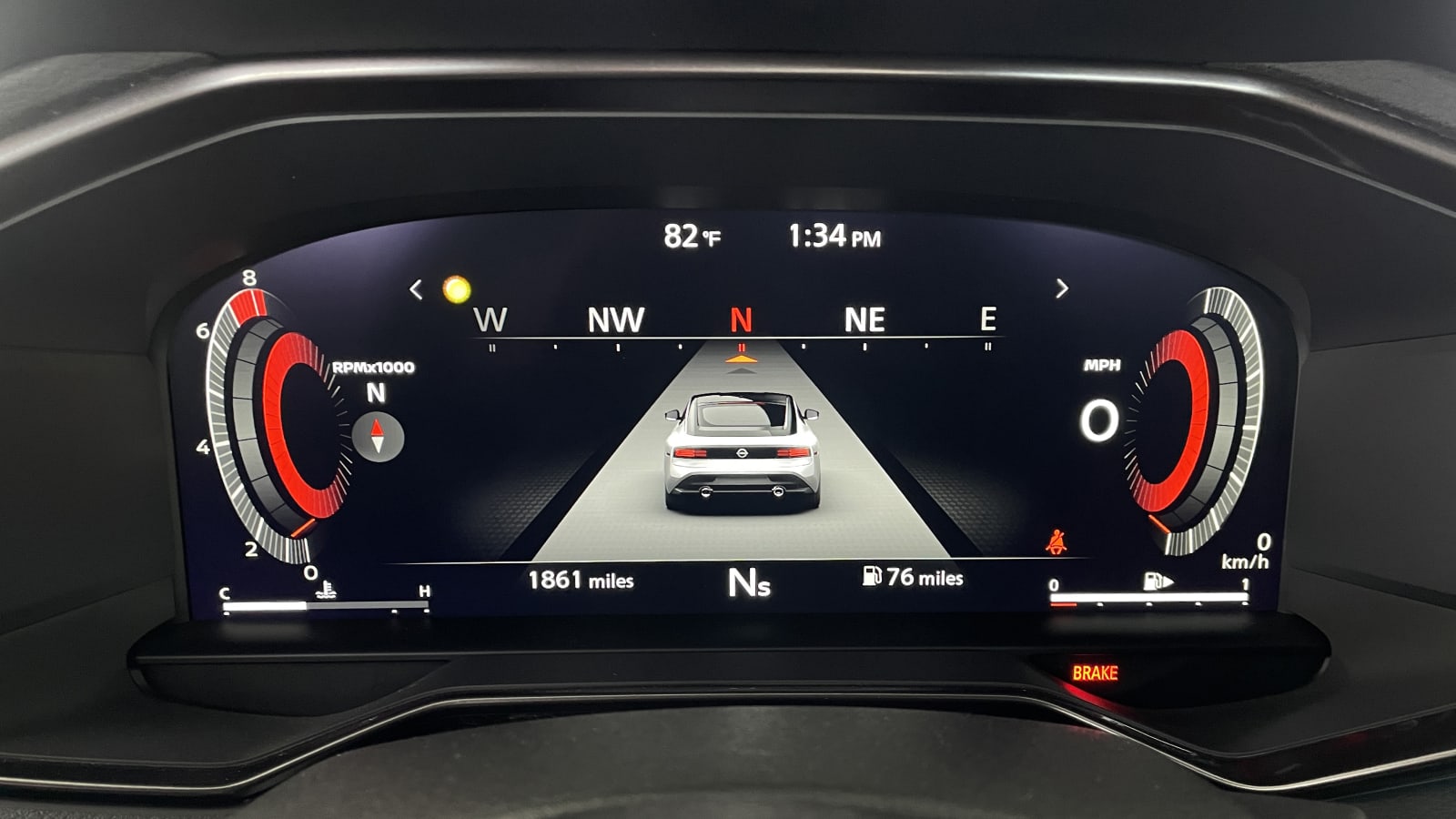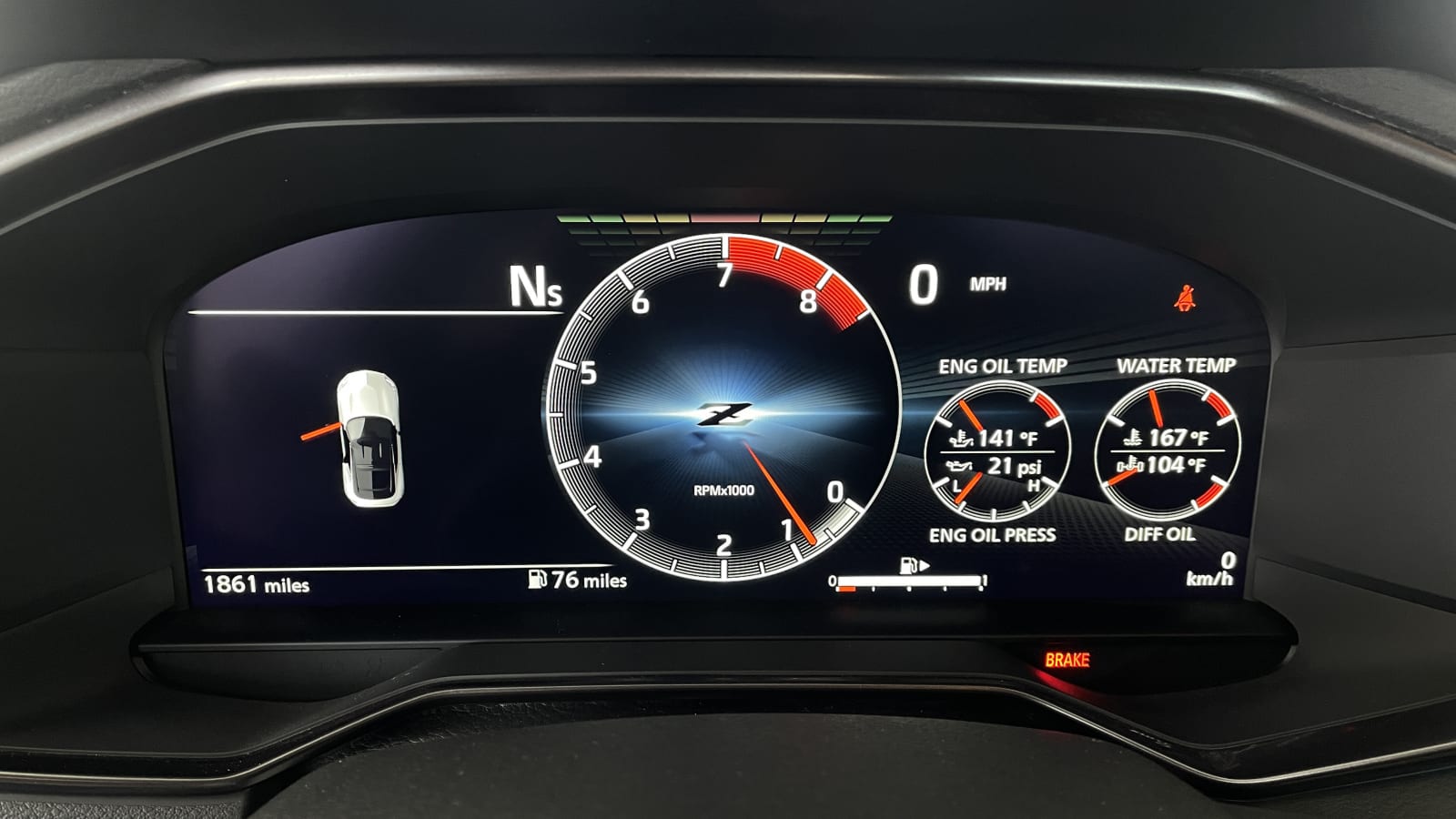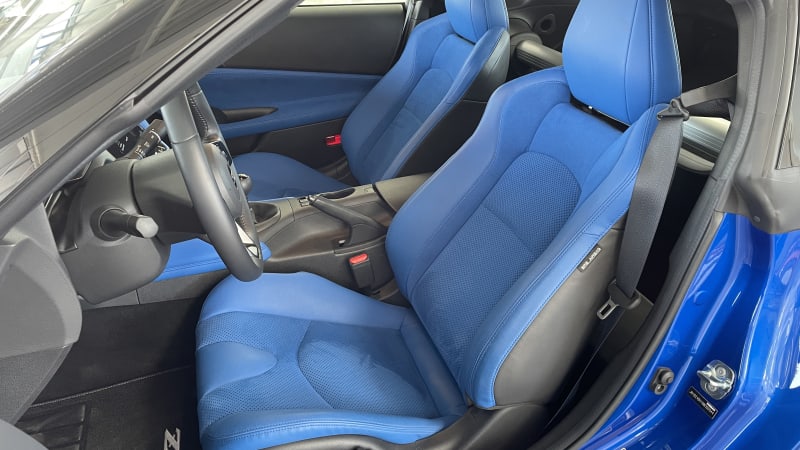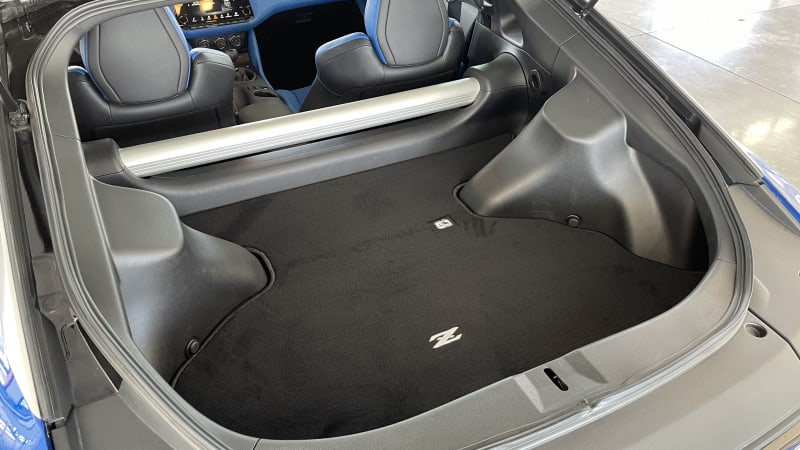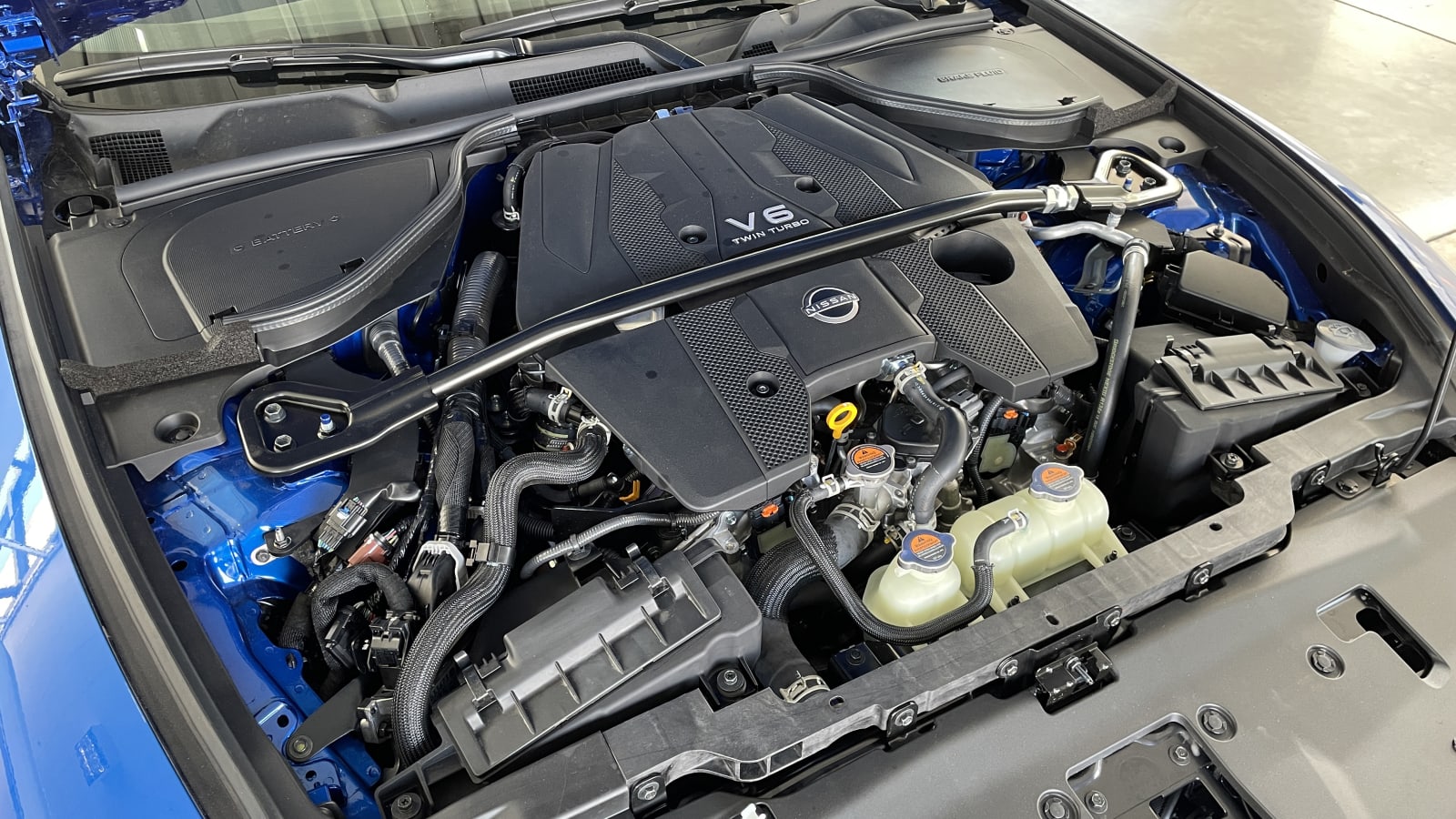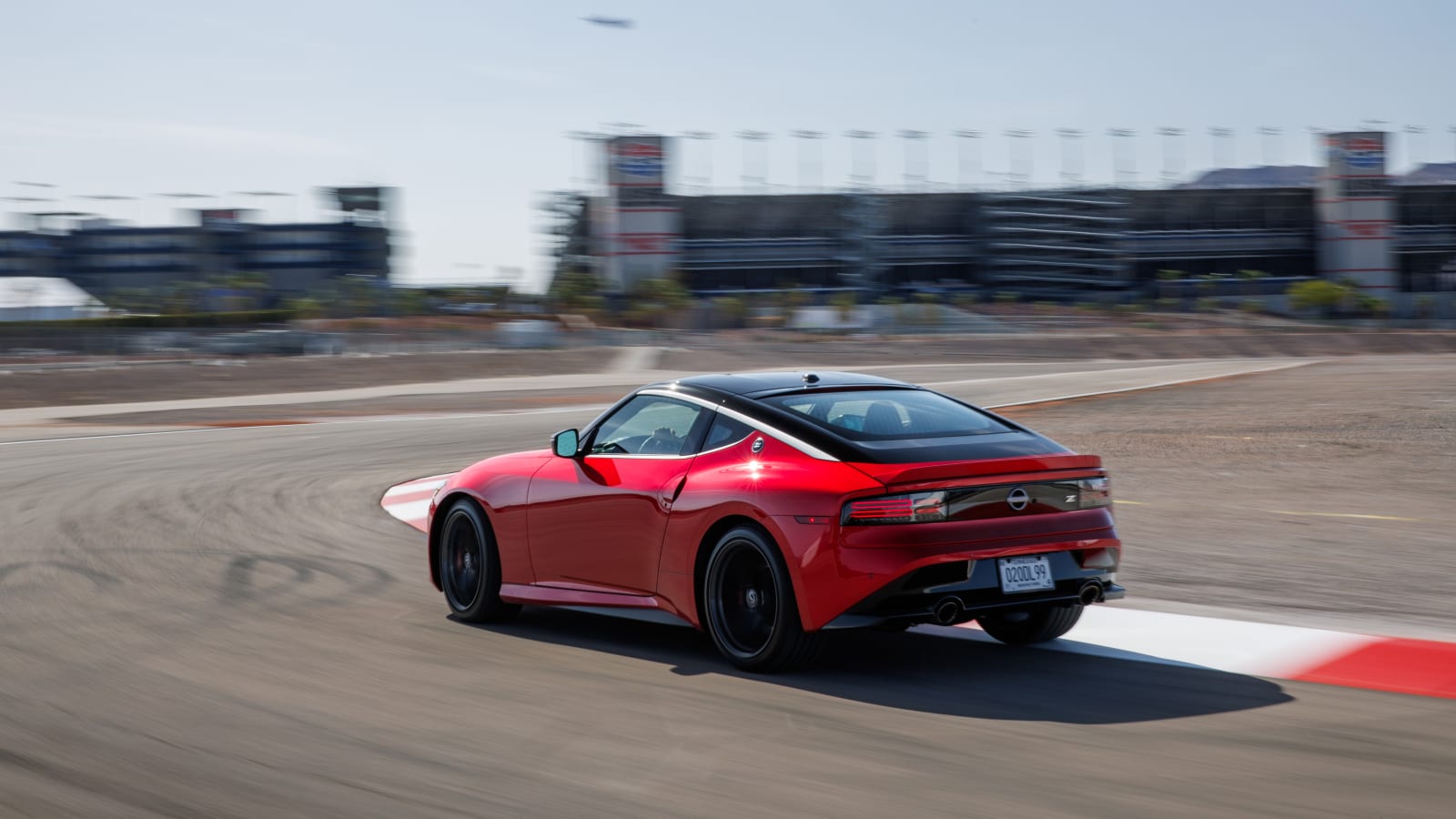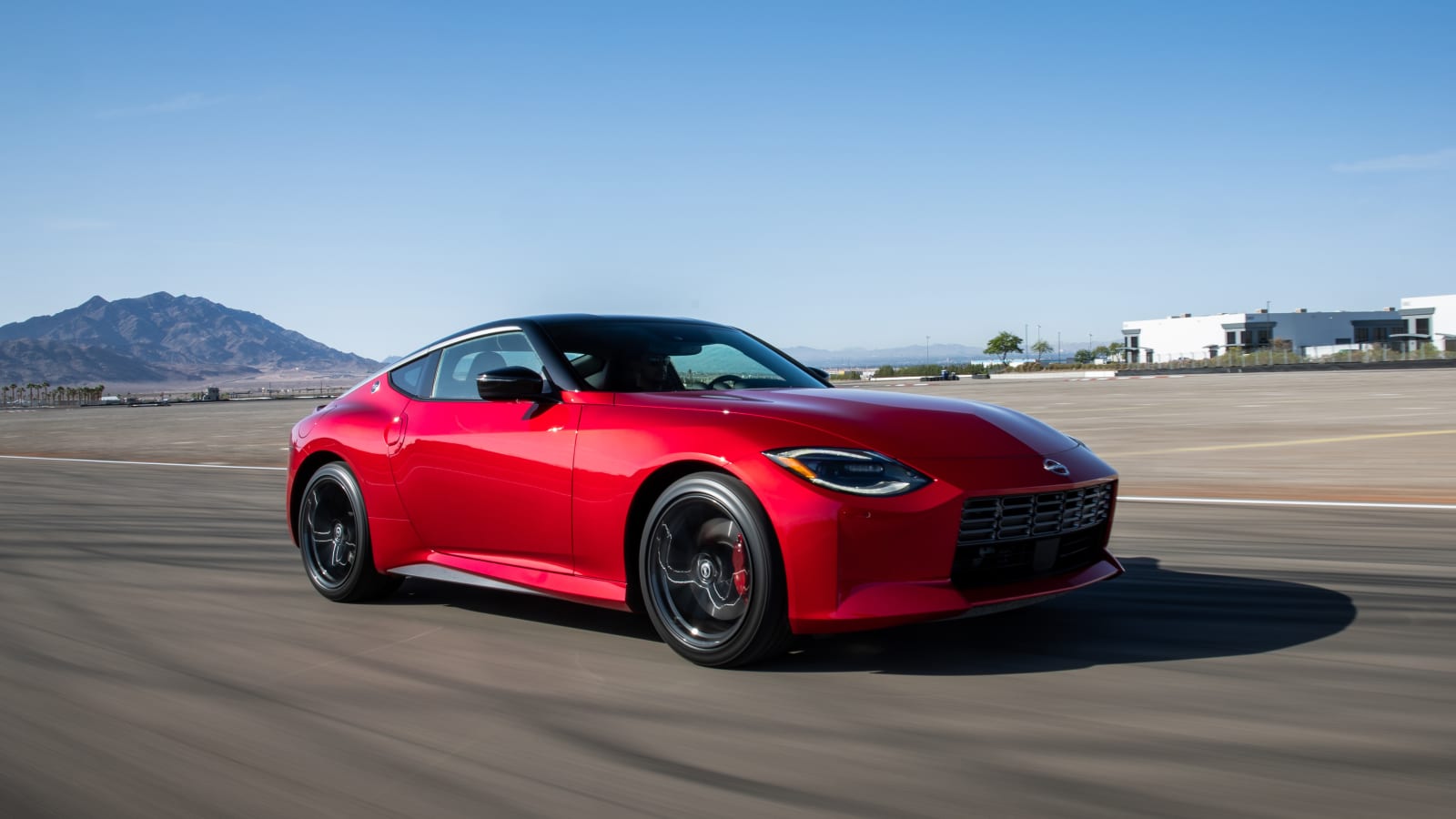[ad_1]
Pros: Strong value; gorgeous styling; good infotainment system; it’s a fun-to-drive rear-drive sport coupe
Cons: Subpar transmissions; tight interior with only two seats; compromised trunk
The Nissan Z is back and genuinely better than ever. It’s packing more power, beautiful retro styling and pricing that makes it a solid value. This latest version of the sports car is not quite all-new, as it’s based on the old 370Z. But it’s heavily updated. The design of course is more retro than ever, with its nose inspired by the original 240Z and its the tail based on the early-1990s 300ZX. Also like the 300ZX, the new Z features a turbocharged 3.0-liter V6 and either a manual or automatic transmission. It all comes together to deliver what you’d expect from a traditional, rear-drive sports car: a playful, fast driving experience that looks good.
Nissan keeps the line-up pretty simple, too. Besides the transmission options, you have a choice between a more basic Sport trim and a Performance trim that includes some additional handling and drivetrain goodies. Both come with the same V6, which means that the base model is quite appealing compared to its closest rival, the Toyota Supra. The higher trim level closes the price gap and can make that decision much closer, since the Supra does have a more modern and capable chassis, plus a sweet BMW engine (and the option of a manual transmission for 2023). But in either guise, the Z has a lot to offer the driving enthusiast.
Interior & Technology | Passenger & Cargo Space | Performance & Fuel Economy
What it’s like to drive | Pricing & Trim Levels | Crash Ratings & Safety Features
What’s new for 2023?
The Nissan Z is an new model for 2023.
What are the Nissan Z interior and in-car technology like?
The Nissan Z interior is a great blend of modern technology and retro looks. Like past Z models, the center stack is canted toward the driver, as are the three analog gauges on top of the dash. Soft touch plastics are used across most of it, and the design really pops with some of the two-tone color options. There are some less-than-premium materials on items such as door handles, however, and in general, the Supra interior is the higher quality environment — which at least partially explains the price difference between them. For the Z’s price, though, the cabin’s look and quality are appropriate.
Perhaps the biggest advancement from one Z generation to the next are the big, vivid and easy-to-read screens. The instrument screen can be configured with different graphics and information to fit your preferences. It can even show an impressive amount of information about the Z’s mechanical bits. In addition to the basics such as speed, revs, fuel and coolant temperature, it has readouts for engine oil temperature, and pressure and differential oil temperature. Coupled with the analog turbo boost pressure, turbo rpm and voltage gauges atop the dash, you’ll be constantly aware of what’s going on under the hood. The infotainment system is also user-friendly and responsive, and incorporates Apple CarPlay and Android Auto.
How big is the Z?
The Z is a bit smaller than the Ford Mustang and Chevy Camaro, and it’s nearly the same size as its closest competitor, the Toyota Supra. Its exterior dimensions are only off by a few tenths in many measurements. The Z does weigh a bit more than the Supra, though. At the lightest, the Z weighs 3,486 pounds, and 3,602 pounds at the heaviest. The six-cylinder Supra 3.0 weighs in at 3,400 pounds. The much less powerful four-cylinder Supra 2.0 is even lighter at 3,181 pounds.
By the numbers, the Z and the Supra’s interior measurements are nearly identical, too. In reality, though, the Z feels much tighter than the Supra. The higher seating position makes headroom tighter, and the cabin feels narrower. This may be exacerbated by the slightly narrow seats with strong bolsters that isn’t the friendliest to bigger body types. It should also be noted that its two-seat interior won’t be for everyone — the back seats of a Mustang, Camaro, BMW 2 Series or Toyota 86 may hardly be adult friendly, but for extra storage or canine transport, they can make a big difference.
As for cargo space, Nissan hasn’t given official numbers, but Car and Driver reports it has 7 cubic feet. That’s smaller than the Supra’s 10.2 cubic feet. The Z’s cargo area is also oddly shaped, as it’s shallow and wide. There’s also an awful lot of car to clear when lifting things up and into the trunk.
What are the Z fuel economy and performance specs?
Unlike most competitors (and the Toyota 86/Subaru BRZ twins are only sorta competitors), the Z has a single engine option: a twin-turbocharged 3.0-liter V6 that makes 400 horsepower and 350 pound-feet of torque. That’s more power than its closest competitor, the six-cylinder Toyota Supra 3.0, but slightly less torque. Power goes to the rear via your choice of a six-speed manual transmission or a nine-speed automatic transmission.
The base Sport model features an open differential, but upgrading to the Performance trim adds a mechanical limited-slip differential. It also adds larger brakes with four-piston front calipers and two-piston rears, sport-tuned suspension, launch control, a higher top speed and rev-matching for the manual transmission, which can be switched on and off.
Your choice of transmission will affect your fuel economy. The automatic is the more frugal model returning 19 mpg city, 28 mpg highway and 22 mpg combined. The manual drops economy to 18/24/20. Both are less efficient than the Supra 3.0.
What’s the Z like to drive?
There’s a lot to like about driving the Nissan Z. The engine in particular is a blast. It’s torquey, responsive, and feels powerful even high in the rev range. It has a throaty, if slightly muted intake noise that’s fun, too.
Handling is predictable and fairly well-balanced. Steering is a little odd, feeling light at low speeds and rather heavy at higher speeds. The chassis is definitely stiffer than the 370Z‘s, but it doesn’t feel as solid as the Supra’s. The suspension has a good tune for street use. It’s firm but not punishing, and there’s just some mild body roll. This is important since an electronically adjustable suspension isn’t available.
The real weak point for the Z is its transmissions. The manual is definitely the best choice. It offers more engagement, and the available rev-matching is welcome. Of course if you feel otherwise, it’s also easy to deactivate with the press of a button, and heal-toe downshift for yourself. Unfortunately, the shifter has long throws and feels a little rough going into gear. While we too want to Save the Manuals(!), this one could be better, which has long been a common refrain among Nissan do-it-yourself gearboxes. The automatic transmission is passable on the street in manual mode, but when driving harder or leaving it in automatic mode, it’s sluggish and not especially smooth. The Supra’s ZF eight-speed is far superior.
What other Nissan Z reviews can I read?
2023 Nissan Z First Drive Review
We take the Z out for a drive on track and find it’s a fast, fun sports car.
What is the 2023 Z price?
Pricing for the Z starts at $41,015 for the base Sport trim. The price is the same whether you go with the manual or automatic transmission. It’s fairly basic as far as features are concerned. On the outside, it has 18-inch wheels, LED lights and single-tone paint. Inside, it gets manually adjustable cloth seats, an 8-inch infotainment screen, six-speaker sound system, Apple CarPlay, Android Auto, Bluetooth connectivity and a digital instrument panel.
Upgrading to the Performance model brings the price to $51,015, and it’s again the same price regardless of transmission. As mentioned in the performance and efficiency section, the Z Performance brings many performance-oriented upgrades such as a limited-slip differential, bigger and more powerful brakes, a sport-tuned suspension, launch control, manual transmission rev-matching and a higher top speed. Visually, it picks up 19-inch forged Rays wheels, and front and rear spoilers. Inside it adds a leather-wrapped steering wheel, aluminum pedals and power and heated seats with leather and faux suede upholstery. Additional convenience features include a larger 9-inch touchscreen and a Bose eight-speaker sound system.
There’s also a Proto Spec for the Performance trim. It’s meant to emulate the Z Proto concept and comes with a two-tone yellow exterior paint and a matching yellow and black interior. It also gets bronze-painted wheels. It brings the price of either the manual or automatic Performance model to $54,015.
What are the safety ratings and driver assistance features?
There are no crash test ratings for the Nissan Z at the time of writing. It does come reasonably well equipped with driver assist and safety features. Automatic emergency braking with pedestrian detection, blind-spot monitoring, rear cross-traffic alert, lane-departure warning, adaptive cruise control and automatic headlights are all standard. There are no other optional features.
Related Video:
[ad_2]
Source link

